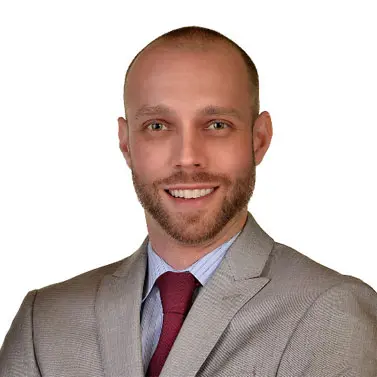We polled the legal community on their opinion of the best ways to communicate with a personal injury lawyer. Here are is how 16 experts answered the question.

John McKiggan
John dedicates his practice exclusively to representing persons who have suffered an injury or loss as a result of medical malpractice, car and truck accidents (or other serious personal injury claims) and institutional liability. He has a special interest in representing victims in civil claims for childhood sexual abuse compensation claims.
Our goal as personal injury lawyers is to provide peace of mind to our clients. They are struggling with stressful circumstances and the last thing they need is uncertainty about what is happening with their personal injury claim.
With that in mind, the most effective way to communicate with a personal injury lawyer is the way that is easiest for the client.
Every effective personal injury lawyer wants to be sure they have all the information they need from their client; have answered all their questions and addressed all their concerns.
So whether the communication is by letter, email, telephone or in person your personal injury lawyer wants to make it as easy as possible for the client to ask questions, provide feedback and get reassurance.
Be wary of any advice received from someone who is not familiar with your case.
Anything a friend, family member, or a different lawyer tells you should be taken with a grain of salt. All cases are different.
If you have a question or are wondering what is going on with your case, just pick up the phone and ask.
Don’t wait to get to a boiling point to reach out to your lawyer. Litigation is a slow process and often much time will go by before your lawyer needs to call you. Don’t work yourself up wondering what is going on with your case waiting for your lawyer to call and tell you – just pick up the phone.
Tell your lawyer the whole story about your case.
Even if there are things about your situation that you think might not be great for your case
- It’s probably not
- your lawyer will be able to help you much more with the benefit of knowing any potentially harmful information and
- they call it attorney-client privilege for a reason.
If the worst thing that happened to you is that you didn’t get good sleep for a few weeks, please don’t call in the first place.
Nobody is going to feel sorry for you and no jury is going to want to award you any money.

Dan Breen
Dan Breen is a Plaintiff Litigation Lawyer at Breen Goril Law in Chicago, Illinois.

Nance L. Schick
I am an attorney/mediator at nschicklaw.com with more than 16 years of experience in personal injury, workers’ compensation, and other business and employment litigation. I have also been a plaintiff in an employment matter and a crime victim who has testified before the grand jury on my assailant’s indictment.
- *NYS License No. 4036256; FINRA Arbitrator ID No.. A60547
- *Certified EEOC and Ethno-Religious Conflict Mediator
- *Main ICERM Representative to the United Nations
- *Author, DIY Conflict Resolution: Seven Choices and Five Actions of a Master
Below are some ways to effectively communicate with a personal injury lawyer:
- Prepare a list of questions. If you have never been injured to the extent you needed to file a lawsuit, you probably want to know:
- What are your rights?
- What are your responsibilities?
- What is the best-case scenario?
- What is the worst-case scenario?
- How long will it typically take for a case like yours to resolve?
- How much are you expected to participate?
- What should you expect to do?
- How does the attorney get paid?
- What is included in the attorneys’ services?
- What is not?
- How often will you be updated?
- Share transparently. You might be concerned that the accident was partially your fault, and you might fear the consequences of that coming out. It probably will, but your attorney is probably skilled in dealing with imperfect cases and can work with the truth when he or she has opportunity to prepare. What you think is devastating to your case might be something we deal with regularly. We aren’t expecting you to come in with a perfectly-polished, slam-dunk case. It’s better to let us know when you have prior injuries to the same body part, were issued a citation at the scene of the accident, have a criminal record, etc.
- Know and communicate your desired result. If you know the other party and want to preserve the relationship, speak up. Your case might be better resolved through mediation or alternative dispute resolution. If you want to return to work, tell your attorney. There might be provisions of the law that affect your choice (e.g., a minimum number of days you must be out of work to pursue your lawsuit). If you are hoping to retire from the settlement, communicate this to your attorney. The injuries you sustained and the money available to pay your damages might not be enough to meet your needs. Likewise, as your needs change throughout the litigation (which could take four to seven years in New York City), relay them to your attorney, so adjustments can be made in the strategy. We’ve seen a lot arise while cases are pending: divorce, incarceration, marriage, cancer, death, natural disasters, terrorist attacks, and more. When you keep us informed, we’re in better positions to help you more completely.
Effective communication with your PI attorney is key to a successful relationship and outcome. The goal of the PI attorney is to assist a client in obtaining compensation for a loss that the client has gone through due to the actions or inaction of another responsible party. When an attorney first meets with a client, the attorney has to make sure that the client has a justiciable claim. Justiciability is a basic checklist to see if a claim can be brought against another party and by extension against their insurance carrier.
The client has to convey three basic points:
- that an injury in fact exists;
- they themselves are the injured party; and
- there are no defenses
For this information the client needs to effectively communicate this basic information effectively. To do that, the client needs to bring documentation and a clear understanding of the timeline of the facts. Documentation is the most effective means by which an attorney can collect objective data. Examples of such documentation is an accident report, an insurance policy, an email, or other records.
A clear timeline is an excellent way to convey to an attorney exactly what happened. Oftentimes, attorneys find themselves having trouble following the client’s perception of the facts. A timeline is a brief, point by point, description of what occurred based on chronology. Start with the first thing, then follow in order, each material fact. For example, 9:01 the car hit me. 9:09 the ambulance arrived, 9:15 I was put in the ambulance. Very basic information like this will save time and make our job of getting you the greatest compensation even more effective.
Other effective communication methods include email. Electronic communication provides attorneys a record to turn to later in time when we are able to address a specific issue or request. Phone calls can be tricky because, our support staff may have a different interpretation of your statements than we the attorneys do. Therefore, to reduce the risk of information being affected in some way, write to your attorney or their support staff in an email. It will help all parties to communicate.
Lastly, scan, email, fax, send letters–documentation and communication in all of its forms should be encouraged. Objective data is paramount. Clear understanding of the facts and what your expectations are of the attorney will help make the professional relationship a success!

Brad Biren

Ryan W. Babcock
My name is Ryan W. Babcock and I first moved to Glynn County in 2003. I live on St. Simons Island with my wife. Two core values, excellence and craftsmanship, inform the decisions that I try to make in my personal life and in my law practice. When I am not practicing law, I like to go for a run, play my guitar or mandolin, read a book, watch a baseball game, or work on my Spanish.
All cases are different and all circumstances are different. While that seems like boilerplate, reading back through what I wrote below, I see that my advice would vary depending on the type of case, client, and place where the claim arose. Communication styles and approaches will vary widely based on the age of the clients and counsel, technology use and ability, and type of case, among other factors. But some general points follow for consideration.
First, if you have sustained any type of relatively serious personal injury, it is important that you insist on communicating with any personal injury attorney that you are considering hiring. Some firms have a business model whereby a client will not work with an attorney much, if ever. Unfortunately, as a result, the case value is not optimized because the firm will not invest the time and effort necessary to do so. These are sometimes called “settlement mills” and may be advertising firms, but this does not describe all or even most injury attorneys.
For best results, and individualized attention, the client should insist on interviewing the actual lawyer that will work on their case so that they can make an informed decision about their case and who will help them with it best. If that effort is rejected, only the client, sometimes with the help of loved ones, can evaluate whether that firm is the best one for the case. This will require careful thought and judgment, which can be difficult in the aftermath of suffering a personal injury or wrongful death, which are often very emotional and difficult times in one’s life.
Second, if you have hired a lawyer, you should follow up periodically with that lawyer’s office, so that you can update them with any new details, and they can update you as well. While you should try to speak with your lawyer’s office every six weeks or so, you must understand that the litigation process takes time, and that delays are a part of the process. Those delays are often outside of your lawyer’s control, but when you have questions, just ask. Your attorney or their office should be able to explain the status of your case to your satisfaction. If that doesn’t work, ask for an in person meeting with your lawyer so that you can evaluate what is happening with your case and then you can better decide how to address any issues.
Third, a word about communication methods. Many lawyers and clients are comfortable with all manner of communication and some lawyers will try their best to accommodate your preference. You may be instructed to use email or some other method, or you may be given free rein to text or fax information. That is a very individual issue, and you should be sure to follow the directive from your lawyer’s office, which will be given to you so that your case can be pursued and concluded in the most efficient manner possible.
Fourth, you should understand that your regular communications with your lawyer’s office may not be with the lawyer, but rather a paralegal or other assistant, which is perfectly normal, and in fact, is helpful and efficient. Your lawyer has other cases and your relationship with your lawyer should be based on mutual trust for best results. You should pay careful attention to your lawyer’s instructions and must not ignore attempts to reach you, which can prejudice your case. In other words, be sure to return phone calls, emails, and letters promptly, and keep your contact information updated with your law firm.
Finally, if you run into serious problems and you find that you cannot communicate effectively with your attorney, and you may need to consider whether you need to find a new lawyer or whether you can take some other step or steps to attempt to resolve your personal injury case more effectively. These are difficult, but not unusual, problems that personal injury clients often face. Try your best to work out your problems with your lawyer and you will probably find that is your best course of action.
Attorneys are in the service industry, so they are typically good at communicating with clients. However, clients may wonder how to effectively communicate with lawyers so that their wants and needs are properly conveyed. Here are some tips on how to effectively communicate with a personal injury lawyer.
Organize Your Thoughts
After a personal injury accident, you may be shaken up and confused. It’s best to communicate clear information by being organized. This may require you to write down what you want to say and practice speaking with a friend or family member.
State What You Want Clearly
Personal injury attorneys will want to help you achieve your goals. Let them know exactly what you want and need so they can help you obtain it.
Read Your Written Communication
If you are emailing your attorney or sending a letter, re-read what you have written. This will let you know if the information is clear and understandable.
Ask Questions
Your personal injury lawyer has a wealth of knowledge about your case. Ask as many questions as you have to allow you to understand the situation.
Personal injury lawyers, such as ours at Staver Accident Injury Lawyers, P.C. can help you through a difficult time. Communicate clearly to achieve your wants and needs.

Jared Staver
<!– [if gte mso 9]>
Normal
0
false
false
false
EN-US
X-NONE
X-NONE
MicrosoftInternetExplorer4
<![endif]–><!– [if gte mso 9]>
<![endif]–>
/* Style Definitions */
table.MsoNormalTable
{mso-style-name:”Table Normal”;
mso-tstyle-rowband-size:0;
mso-tstyle-colband-size:0;
mso-style-noshow:yes;
mso-style-priority:99;
mso-style-qformat:yes;
mso-style-parent:””;
mso-padding-alt:0in 5.4pt 0in 5.4pt;
mso-para-margin:0in;
mso-para-margin-bottom:.0001pt;
mso-pagination:widow-orphan;
font-size:11.0pt;
font-family:”Calibri”,”sans-serif”;
mso-ascii-font-family:Calibri;
mso-ascii-theme-font:minor-latin;
mso-fareast-font-family:”Times New Roman”;
mso-fareast-theme-font:minor-fareast;
mso-hansi-font-family:Calibri;
mso-hansi-theme-font:minor-latin;
mso-bidi-font-family:”Times New Roman”;
mso-bidi-theme-font:minor-bidi;}
A native of northwest Iowa, Jared B. Staver has known the value of hard work since he was young. He spent summers on his uncle’s farm, working from dawn to dusk, and also began delivering newspapers in elementary school. Jared worked his way through his studies at Iowa State University as well as his law degree at John Marshall Law School in Chicago.

Mike Rainwater
President, Rainwater, Holt & Sexton
Mike Rainwater Arkansas Injury Attorney Born in Little Rock. Mike Rainwater’s family roots go back to Crawford and White County. Mike graduated from North Little Rock High School and attended college at Henderson State University and Louisiana Tech.
The most important thing to remember when talking with a personal injury lawyer is the lawyer works for YOU! As the client, we always strive to keep you informed, and all the decision making power lies with you. The attorney is not the decision maker, the client makes all decisions. These attorney’s job is to keep you well informed and give you sound legal advice.
When you first speak with an attorney it’s important to provide the following information to allow them get to work quickly on the case.
- Contact Information
- Key factors about your case
- Police reports
- Medical records
- Financial documents or medical receipts
- Photos of the accident or injury
- Witness statements
Once the attorney has all the information, they should be able to make good progress on the case. As the client you should never feel hesitant to call your attorney for an update, it’s the attorney’s job to communicate with you and keep you updated on your case.
Communication with your Personal Injury Lawyer requires openness, patience, and understanding from both you and your lawyer. You hired your lawyer not only to represent your interests, but also to answer your questions, give advice and help guide you through the process.
Personal Injury Lawyers truly are Counselors at Law, because they are called on to help you through a time when you are injured, in pain, and may be unable to work or even just do the things you need to do in your day-to-day life. Ultimately, while you are going through one of the hardest moments of your life, a Personal Injury Lawyer is guiding you through the processes and worries.
So, when you are sharing your questions and issues with your attorney, the most important thing you can do is to be honest and provide all the information necessary. This openness will allow your lawyer to provide the best help possible. Further, it will allow your lawyer to properly plan for any issues that may arise. Hiding things you think might not help your case instead makes it impossible for your lawyer to do their job and get you the recovery you deserve.
As things change, keeping your attorney up to date on your treatment and health is another crucial aspect of effectively communicating with your personal injury lawyer. Lastly, part of being honest also involves letting your attorney know if you are unclear or do not understand any part of the case or process. Otherwise, you are not getting the advice and guidance you need to get through your personal injury case.

Julie Peschel
Julie L. Peschel is a partner at The Carlson Law Firm who recognizes that navigating a personal injury claim is an emotional rollercoaster. That is why for more than a decade, she has dedicated herself to her clients and to The Carlson Law Firm.

David Reischer, Esq.
Attorney & CEO of LegalAdvice.com
The most effective way to communicate with a personal injury lawyer is to be clear and honest. That is to say that a client should speak with the attorney in a frank and candid way about the details of the case in a manner that is not overly complex. Only after understanding the basic facts of the case can any attorney be quipped to represent his or her client and shape a winning legal strategy.
First, you should make sure that you have the kind of case that would interest a personal injury lawyer. Accident and injury attorneys can only help those who have suffered an real injury. Therefore, if you had vehicle damage, but not bodily injury, personal injury lawyers cannot help you.
On the other hand, if you had serious vehicle damage, and have any pain, then you should first (and quickly) be evaluated by a doctor, and also consult with an accident lawyer. We frequently have potential clients who didn’t realize how serious their injuries were, until days or even weeks after the accident. Since most accident & injury attorneys offer free consultations, checking with them after any serious accident is always a good idea.
Personal injury lawyers have different thresholds for the severity of injuries they will handle. For example, some lawyers will handle any auto accident case, almost without regard for the seriousness of the injury.. Other lawyers, like me, only accept clients who have injuries that are fairly serious, like those people who required surgery or worse. This is criteria varies depending on the lawyer. So you will need to call around to learn whether the lawyer you want might consider the type of case you have.
Once you are actually speaking with a personal injury lawyer, you should focus on answering their questions, not offering a lot of extraneous information, unless requested.
Auto accident lawyers are generally very focused on these specific issues:
1. when & where the accident happened (this is to make sure the case would be within the applicable deadline for filing a lawsuit, and the geographic location where the lawyer would be willing to travel to handle any case);
2. whether the other driver had any fault for the accident (and the extent of any fault you may have);
3. whether the driver who hit you was in a commercial vehicle, or what amount of insurance coverage they might have
4. what type of diagnosis and treatment you have already received, how long after the accident you received your first treatment, whether you were transported by ambulance from the scene of the accident, when you were last treated, and any pre-existing & related medical conditions you might have; and
5. the seriousness of your injury, and likely necessary future medical treatment.
For other types of accidents, like slip and fall cases, they may want additional details, like what exactly caused your fall, whether you were watching where you were going, what type of shoes you were wearing, and the like. Or, for wrongful death cases, they will want to know other details, like your relationship with the deceased, his or her potential earnings, and similar issues.
Since lawyers are generally trying to determine whether the potential defendant had any fault, how serious your injuries are, and how much insurance coverage is available, you should try to listen carefully to their questions, and provide only the requested information. If your lawyer wonders about other issues, such as whether there were any witnesses, they will ask.
Additionally, being very honest about any shortcomings in your case, such as your prior medical history, or any fault you might have shared for the accident, is very important. If you aren’t honest, you could spend years of wasted time, and even face potential liability, only to have the lawyer for the other side destroy your case in the end. Lawyers have many ways of verifying information, such as speaking with other witnesses, and checking medical records, and any other relevant documents. If your claims are proven untrue in the end, you will not recover much, if any, money, and may even face liability to the other side for their attorney’s fees (not to mention waste everyone’s time, including your own). So honesty is always the best policy.
Overall, personal injury lawyers are very busy, and spend a lot of their time evaluating new cases, which may or may not have merit. We usually know exactly what type of accidents & injuries will meet our varying thresholds, and the answers usually are not complicated.
So the best approach is to honestly answer their questions about the details of your injuries and the accident itself, without offering much extra information, unless the lawyer asks. Lawyers have limited time, so appreciate those who respect their time. Also, if you spend too much time providing irrelevant information, the lawyer may never hear what they actually want and need to know.

Tina Willis
Ms. Willis handles serious injury, accident & death cases in Orlando, Florida. She is a former law professor and big firm defense lawyer, who spends a lot of time educating her clients about how to get the most money possible from their cases, then fighting hard to help them recover every penny they deserve.

Thom Pryor
Founder, LawsuitLegal
Thom Pryor is the founder of the Lawsuit Legal, and creator of the Lawsuit Legal Attorney Network which includes some of our nations top legal industry professions, including a number of recognized Super Lawyers, Million Dollar Advocates, and Power Lawyers. He’s been featured in a number of top publications and is considered an expert in the business of law.
Direct, honestly and holding nothing back. Communicate to the best of your ability the knowledge of the event. Stick to the facts, and then be prepared to answer any questions your attorney has as best you can. A good attorney will probe and help draw out your story – listen, help and always be honest – and they will get you through it.
When it comes to clients communicating with their lawyer, the best thing I recommend is creative communication methods. One of the things we do in the office, is we communicate with our clients in a variety of ways, from personal phone calls, to emails, and text messages. That way, if we are in a meeting and a client just has a quick question, we can get them the answers they need quickly. Time is a precious commodity for lawyers (and clients), so ways the two can work together when it comes to effective communication are a must.
In this same vein, we also are real with our clients about timing, expectations, etc. This way, a client understands how long something will take. As a client, I encourage someone to ask their attorney for realistic timelines. For example, most lawsuits don’t finalize within a year. So, ask your lawyer their estimation of how long yours will be. As for other aspects of the case, like medical records, it is usually impossible for a law firm to get them back within a day. There is just too much red tape. So, if you are in a hurry to hear back from your lawyer about your medical records, you can help them by obtaining the records yourself – which is much faster.
Open communication between lawyer (law firm) and client is the key to happiness on both sides.

Candess Zona-Mendola
My name is Candess. I help litigate food and water contamination cases as a Senior Trial Paralegal, so I know a thing or two about lawyers.

Randolph Rice
Attorney Randolph Rice is the founder and owner of the Law Offices of Randolph Rice, a Baltimore, Maryland, based criminal defense, DUI, DWI, drunk driving defense, traffic tickets, personal injury, car accident, truck accident, and medical malpractice law firm.
We find that one of the most effective ways to communicate with our personal injury lawyers is via email. We are finding more clients want to conduct the initial interview via phone and then we email all forms to them for completion. In most personal injury cases, documents are key. Not every client owns a scanner. so we have our clients take pictures of their documents with their smartphone and then email those images to our office.
We have also utilized Google Forms to collect data and information about our client to better assist us in pursing their injury claim.
We also use SMS text messaging to communicate with our client regarding their personal injury claims. However, text message is not always the best for questions that require in depth information or multiple answers. The telephone is still a great resource when we need to explain a concept or relay information to a client.
The most effective way for a client to communicate with a personal injury lawyer is by discussing your expectations at the time of hire. If a lawyer or his team understands how often a client expects a status update, then the lawyer can always set time aside to effectively relay information. Lawyers hate to be unprepared to discuss ANY matter—and it can also be frustrating with the client as well.
My practice is to always determine the method and frequency of communication at the onset so that all parties are on the same page. It is also important for clients to understand that if he or she is taking unscheduled phone calls all day, there’s a high chance that it is taking the lawyer away from being able to work on the case! I make a habit of being personally involved in EVERY case, so scheduling appointments is key for our success.

Riah Greathouse
Since being admitted to practice law in the State of Georgia, Riah Winston Greathouse has been counsel of record in over 1000+ criminal and civil matters throughout the state with a high rate of success.
This is a crowdsourced article. Contributors' statements do not necessarily reflect the opinion of this website, other people, businesses, or other contributors.
